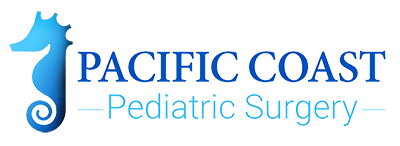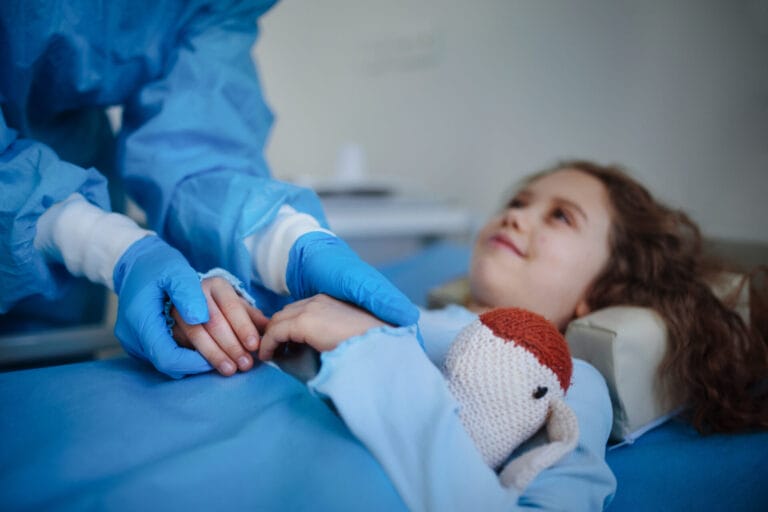A Comprehensive Guide to Pectus Excavatum Surgery
Located in Thousand Oaks, California, Pacific Coast Pediatric Surgery is renowned for its expertise in treating pectus excavatum. This congenital condition involves a sunken breastbone, affecting both physical and emotional well-being. Understanding the surgical options for correcting this condition can help families make informed decisions about their child’s health. This article provides a detailed look into the condition of Pectus Excavatum and the Nuss procedure to correct it, explaining the benefits, surgical process, and recovery.
Understanding Pectus Excavatum
Pectus excavatum, often referred to as “funnel chest,” is characterized by an abnormal growth of the breastbone and rib cartilage, leading to a concave chest appearance. It can have significant implications:
- Physical Challenges: Severe cases can create pressure on the heart leading to reduced cardiac efficiency, especially during exercise. This often manifests as shortness of breath and sometimes chest pain during exercise.
- Emotional Impact: The visible chest wall deformity can negatively affect a child’s self-esteem and social interactions, potentially leading to psychological distress.
Why Consider the Pectus Excavatum Surgery?
Surgical correction is often recommended for moderate to severe cases to address both physical and aesthetic concerns. The benefits of undergoing surgery include:
- Improved Physical Function: Surgery relieves pressure on the heart enabling improved cardiac function (cardiac index), thereby improving exercise tolerance, and athletic performance while reducing shortness of breath and chest pain.
- Enhanced Appearance: Restoring the chest to a normal contour frequently improves a patient’s self-body image and significantly boosts a child’s self-confidence.
- Improved Overall Quality of Life: Improved physical and psychological health often leads to greater participation in and enjoyment of activities and overall well-being.
The Nuss Procedure: A Minimally Invasive Technique
At Pacific Coast Pediatric Surgery, we specialize in the Nuss procedure, the leading minimally invasive surgical technique for correcting this congenital chest condition. This method offers numerous advantages over traditional open surgery (modified Ravitch Procedure), including shorter recovery times and minimal scarring.
- Comprehensive Evaluation: The process begins with a thorough medical history and physical examination. The studies include a chest CT scan to assess the severity of the deformity and plan the surgical approach. Every patient also has a detailed consultation with a pediatric cardiologist which includes an echocardiogram and ECG.
- Surgical Technique: During the Nuss procedure, small incisions are made on either side of the chest. Using a small scope inserted in the chest for guidance, a curved metal bar, custom-fitted to the patient’s chest, is inserted behind the sternum. The bar is then rotated, pushing the breastbone outward into its correct position.
- Anesthesia Technique: While under general anesthesia, the nerves between the ribs are cold-treated, a technique known as cryoablation. This technique has significantly reduced pain after the procedure, enabling a faster and more comfortable recovery.
- Securing the Bar: The bar is secured with stabilizers to maintain its position. It typically remains in place for 2-3 years, allowing the chest wall to remodel and stabilize.
- Postoperative Care: After the surgery, patients usually stay in the hospital for 2-3 days. Pain management is a critical component of recovery in the first week after surgery, and gradual resumption of activities is encouraged to support healing.
- Bar Removal: Once the chest wall has been remodeled, a follow-up procedure is performed to remove the bar. This is usually performed on an outpatient basis with minimal recovery time.
Personalized and Advanced Care
Dr. Frykman and the Pacific Coast Pediatric Surgery team integrate the latest advancements and personalized treatment plans in the management of pectus excavatum, ensuring:
- Precision Surgery: Our minimally invasive techniques minimize trauma, reduce scarring, and speed up recovery.
- Tailored Approach: We create customized treatment plans for each patient, addressing their unique physical and emotional needs.
Why Choose Pacific Coast Pediatric Surgery?
- Expertise in Pectus Procedures: Our team has extensive experience with the Nuss procedure (over 100 patients treated) and a high success rate in treating chest deformities, making us a trusted choice for families.
- State-of-the-Art Facilities: Located in Thousand Oaks, California, our facilities are equipped with cutting-edge medical technology, providing a safe and comfortable environment for patients needing surgical procedures.
- Holistic Care: We offer comprehensive care from initial consultation to postoperative recovery, ensuring seamless and supportive treatment for every patient.
- Local Convenience: Our central location in Thousand Oaks, California, makes specialized pediatric surgical care easily accessible for families in the region, eliminating the need for long-distance travel.
Preparing for the Visit
Parents can prepare for the Pectus Excavatum procedure by:
- Scheduling a Consultation: Contact us to arrange a consultation to discuss your child’s specific condition, the diagnostic work to create a therapeutic plan.
- Following Preoperative Guidelines: Adhere to all pre-surgical instructions, including fasting and medication management.
- Providing Emotional Support: Help your child understand the procedure, addressing any fears or concerns they may have in an age-appropriate manner.
Recovery and Long-Term Care
Post-surgery, the recovery process involves:
- Effective Pain Management: Our proven and individualized pain management strategies minimize opioid analgesic use and effectively manage discomfort during the initial recovery phase.
- Gradual Activity Increase: We encourage light activities and gradually increase mobility as detailed in our post-Nuss procedure guide for patients and families.
- Regular Follow-Ups: After the Nuss procedure, we have regularly scheduled follow-up appointments to monitor progress and address any issues promptly.
- Emotional Support: Continue to provide emotional support to help your child adjust to their new chest appearance and build their confidence.
Conclusion
Pacific Coast Pediatric Surgery is dedicated to providing specialized care for pectus excavatum. Our expertise and state-of-the-art facilities in Thousand Oaks, California, ensure that your child receives the highest standard of care. Choosing us means entrusting your child’s health to a team committed to achieving the best possible outcomes. For more information about Pectus Excavatum and the Nuss procedure, or to schedule a consultation, visit our website at Pacific Coast Pediatric Surgery. Let us help your child achieve a healthier and more confident future.








